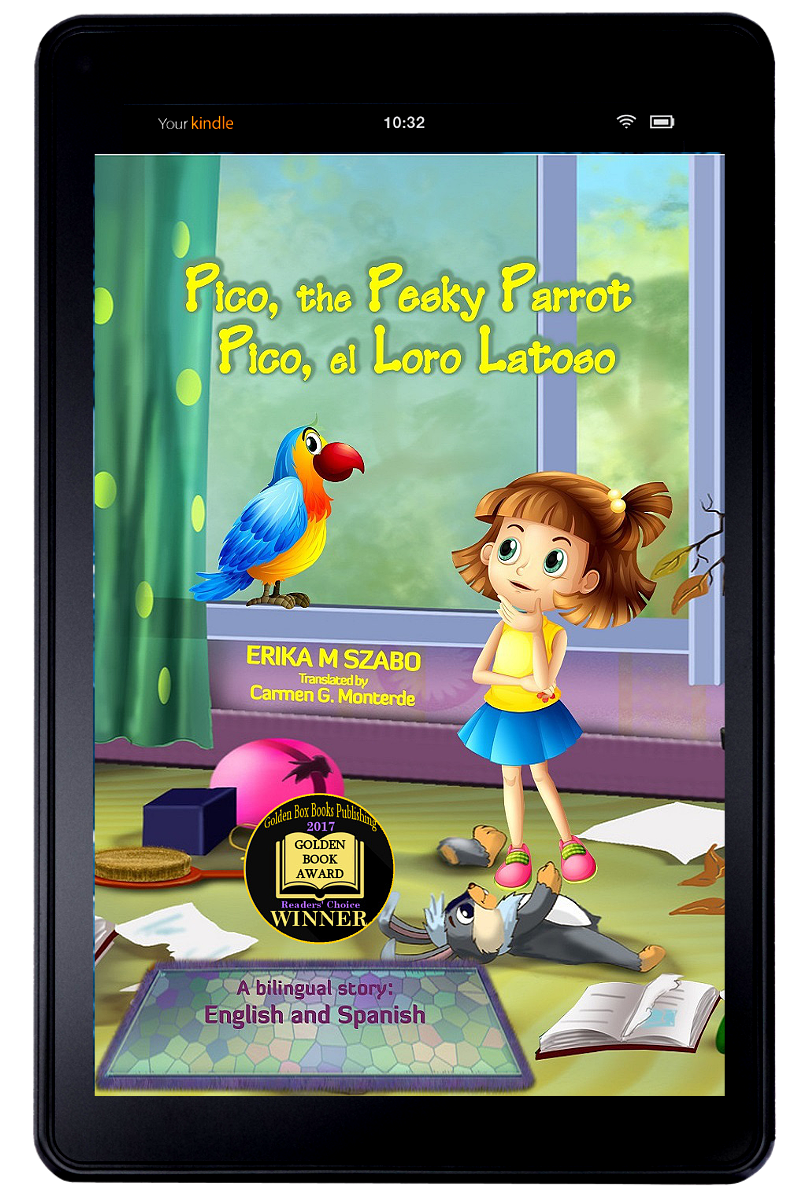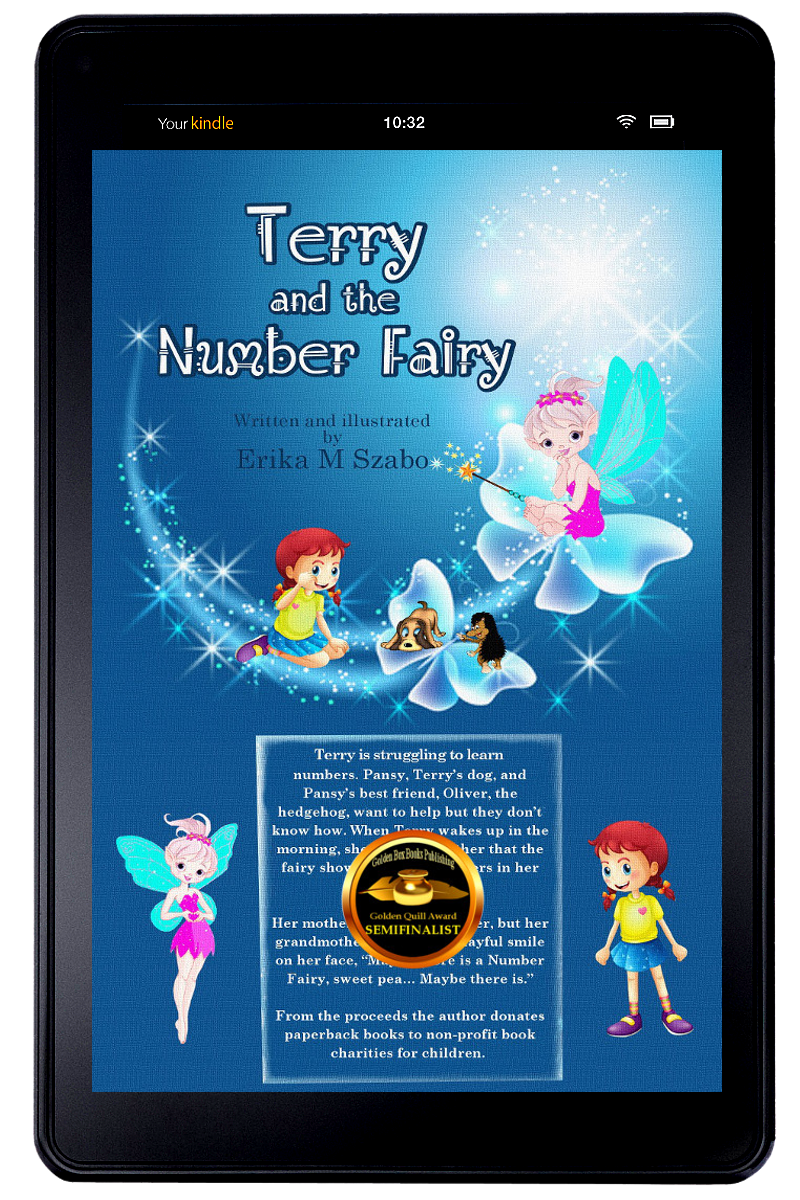- HOME
- CONTACT
- ABOUT ME
- My Thinking Board
-
LIBRARY
- BOOKISH MAGAZINES
- Libros españoles
-
CHILDREN'S BOOKS
>
- Noodles and Cicada
- A Basketful of Kittens
- Be Careful What You Wish For
- Creepy Hollow Adventures
- Hophop's Alphabet Tree
- Look, I Can Talk With My Fingers
- My Book-My Stories
- Me Too
- Mira, ¡puedo hablar con los dedos!
- Persnickety Peacock Pierre
- Pico, the Pesky Parrot
- Terry and the Number Fairy
- The Chunky, Dumpy, Spunky Monkey
- Who Stole Terry's Music Box?
- FICTION NOVELS >
- STORE
Are they really?My main message in writing this post is to challenge the idea that people from different countries, who may not fully understand the language or be accustomed to a new way of life, are often automatically considered "stupid." In fact, they may come from a culture with a wealth of knowledge and traditions that we can learn from.
I grew up in the picturesque landscapes of Hungary, surrounded by the enchanting melodies of Hungarian folk music and the savory aroma of traditional goulash simmering on the stove. However, my journey led me across oceans to the United States three and a half decades ago. The transition was akin to a butterfly emerging from its chrysalis - challenging yet exhilarating. Embracing a new language and lifestyle was like mastering a complex dance, each step a blend of excitement and uncertainty. The people I encountered in this new land varied in their reception. Many extended warm embraces, eager to share their customs and learn about mine. Yet, there were others whose eyes bore traces of disdain, their words dripping with condescension. "Stupid foreigners," they would scoff under their breath when met with my linguistic stumbles. But let's delve deeper into this notion: the term "stupid" falls short in capturing the essence of most immigrants, irrespective of their origins. It is an oversimplification that fails to acknowledge the rich tapestry of experiences and knowledge they bring. Terms like "ignorant" or "unintelligent" are often misused in similar contexts. "Stupid" implies a lack across various facets - intelligence, wisdom, discernment, and agility of thought. In contrast, "unintelligent" denotes a constrained capacity for learning and comprehension, while "ignorance" speaks more to a gap in knowledge rather than intellect. Allow me to unveil a treasure trove of marvels crafted by Hungarian visionaries - testaments to the ingenuity that pulses through the veins of this remarkable nation. Let’s start with the ballpoint pen: Invented by László Bíró, 1931 Write your shopping list with the ballpoint pen and put it on the refrigerator with a magnet: Invented by Leó Szilard 1929 Lit your gas stove with a noiselessly igniting phosphorous match: Invented by János Irinyi 1836 While listening to a CD, look at the hologram sticker on the cover: Invented by Dénes Gábor, 1947 Take your vitamin C: Discovered by Szentgyörgyi 1931 Make a phone call from your landline phone: Invented by Tivadar Puskás 1878 Today, computers are part of our lives. Basic Computer system: Invented by János Hard 1964 When you organize your tasks into Excel spreadsheets, remember: Invented by Károly Simonyi 1974 Ever watched a 3D movie with 3D glasses? Invented by Dániel Rátai 2010 Have you ever listened to a vinyl record on his traditional turntable? Invented by Károly Goldmark 1948 Are you watching a color TV? Invented by Károly Goldmark, 1948 Are you enjoying the view of Central Park in New York? Sándor Asbóth prepared the layout plan of the city Have you marveled at the moon car? Invented by Ferenc Pávlics, c. 1960 Have you solved the Rubik's Cube? Invented by Ernő Rubik, 1976 You snap a picture with your automatic camera: Invented by József Mihályi 1938 Do you wear contact lenses? Invented by József Dallos 1928 And soft contact lenses: Invented by István Gyorffy 1959 About cars: Ford Model T József Galamb 1908 BMW with a diesel engine: Ferenc Ansits 1983 Chevrolet with an automatic transmission: László Bíró 1932 There was even a VW beetle because of its special design: Béla Barényi, 1925 Carburetor: Invented by János Csonka 1893 Dynamo: Invented by Ányos Jedlik 1861 When you see a helicopter landing, thank: Oszkár Asbóth1928 Krypton-filled lamp: Invented by Imre Bródy 1930 You might regularly drink some kind of soda. Right? Invented by Ányos Jedlik 1940 These are just a few of the many inventions created by Hungarians that have made our lives easier.
2 Comments
|
TidbitsMy published books
Golden Box Books Publishing
Categories
All
Children's booksSpanish books |

 RSS Feed
RSS Feed






























